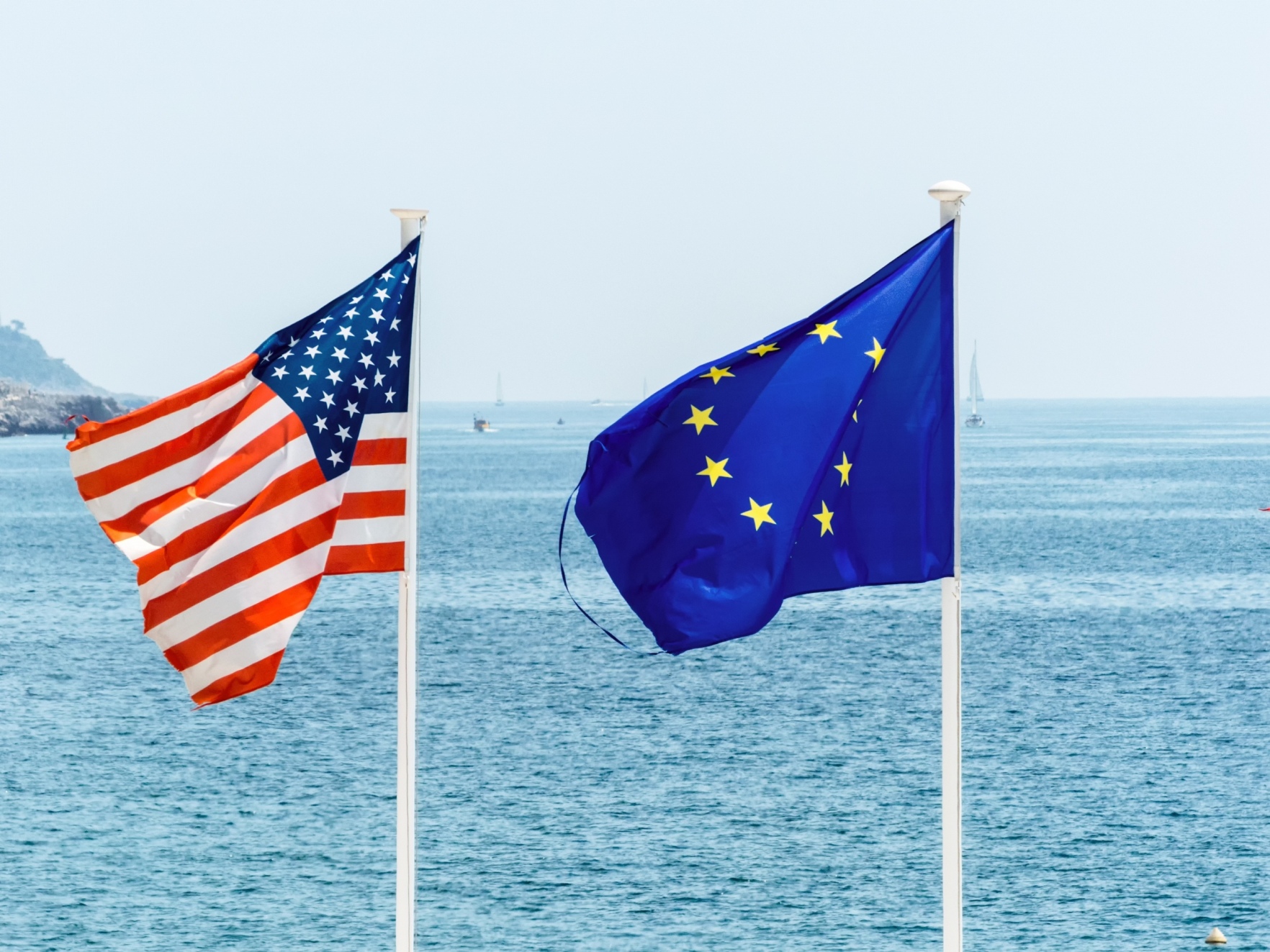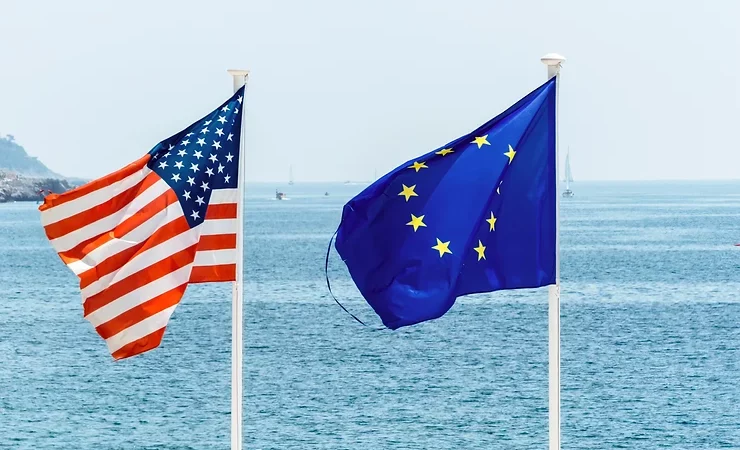Abstract: Europe must become more self-reliant in security and defense policy, without the transatlantic alliance becoming less important in the process. It is not enough to talk about establishing a “European Army” or so-called PESCO or setting up a European defense fund. The first step must be a joint answer to the question: what should the European pillar of the transatlantic alliance look like, and above all: what kind of NATO does Europe need to protect its security interests? Europe’s real strategic objective is being taken seriously as a strategic partner of the USA. Europe needs to be the partner the US needs to defend the greater Atlantic community.
Bottom-line-up-front: Europe needs a common strategic narrative. In European security policy, it is no longer enough to look to Washington with bated breath and wait for strategic directives from a great power. The US is waiting for productive European initiatives.
Problem statement: What kind of NATO does Europe need to protect its security interests and what does that mean to the transatlantic relationship?
So what?: If we want to keep pace as a military power in the future, we must have technological leadership in the air, on and under the water, on earth, in space and, above all, in cyberspace. NATO needs to adapt to this, and that means adapting military contributions requested from Europe.

Source: shutterstock.com/Lisa-S
One thing is certain: Europe has never been so dependent on the United States for its security as today. All EU states together account for about half of the US defense budget. Due to poor interoperability and lack of commonly procured equipment, the European armed forces achieve only about 20 percent of output and operational capability of the United States. The Bundeswehr “leads” the European armed forces as an example of their miserable state. Despite outgoing US President Donald Trump’s erratic Tweets, the United States will not abandon Europe to another power. Moreover, NATO continues to remain an instrument of American foreign and security policy. It is part of America’s strategic narrative. As strange as it may sound, both Donald Trump and Joe Biden want the same thing in Europe – a fairer distribution of burdens within NATO. This is what the French President is responding to when he talks about a stronger role for Europe. However, we should have no illusions about what real strategic autonomy would mean for Europe: A Europe completely sovereign from the US would need triple or even quadruple its defense budget. The NATO political commitment of 2% – which Germany cannot even scrape together – would not be nearly enough. This would also mean massive nuclear build-up in Europe. There will be no political will in Europe for strategic autonomy as soon as its real scope becomes clear.
A Europe completely sovereign from the US would need triple or even quadruple its defense budget.
Since the end of the Cold War, American expectations of Europeans – and particularly Germans – have remained consistent: Greater international responsibility, conventional military autonomy and less hollow transatlantic lip service. Sadly, they got exactly the opposite. These expectations however, will continue to remain consistent under newly elected President Biden. The USA does not need Europe to defend itself. For years, its focus has been on Asia-Pacific and on its main competitor, China.
In the meantime, the US has learned that for Germany, the transatlantic commitment is mostly an excuse to stay comfortable under the US nuclear umbrella. At the same time, advocates of European strategic autonomy in Germany often simply serve anti-American resentment. By Europeanizing security issues, they want to abdicate responsibility and thereby national commitment in security and defense.
The German position on security is not sustainable
Europe must become more self-reliant in security and defense policy, without the transatlantic alliance becoming less important in the process. If this is what French President Emmanuel Macron means when he talks about Europe’s strategic autonomy, he is completely correct. However, it is not enough to simply talk about the establishment of a “European Army” or so-called “Permanent Structured Cooperation” (Pesco) or setting up a European defense fund. That does not go far enough. Paris and Berlin must first take a “top-down approach” to clarify Europe’s political and strategic issues. The first step must be a joint answer to the question: what should the European pillar of the transatlantic alliance look like, which Paris and Berlin should play a decisive role in shaping, and above all: what kind of NATO does Europe need to protect its security interests? These points must be discussed and aligned with the new US administration.
What kind of NATO does Europe need to protect its security interests?
Finally, Europe needs a common strategic narrative. In European security policy, it is no longer enough to look to Washington with bated breath – as we did at the time of the American elections – and wait for strategic directives from a great power that has its own strategic narrative and interests. The US is waiting for productive European initiatives. They want Europeans to clearly and unambiguously define our strategic interests concerning:
- the People’s Republic of China,
- the Russian Federation,
- international terrorism,
- the ongoing uncontrolled migration to Europe, and
- the current developments of the international security policy in the Mediterranean area, in the course of the North African coastline, as well as in the Sahel zone or the Middle East.
It is not the US’s task to protect Europe’s strategic glacis and Europe’s borders. For example, it is not the US’s sole task to disarm the thousands of Islamist terrorists and fighters who threaten Europe’s security at its gates, such as in Libya or the Sahel. In this regard, Europe has almost no capabilities. The “EU Battle Groups” established in 2004 are politically impractical and militarily useless for this purpose. These EU military formations are veritable “paper tigers” by and for military bureaucrats. They cost a lot of money and, like the Eurocorps or the Franco-German brigade, were never deployed coherently. They are a security policy fig-leaf, hiding only Europe’s military impotence.
By contrast, the idea of a “28th Army” developed by the SPD parliamentary group is a proposal that is still worth considering in order to establish a practical military capability for Europe. This involves a military rapid reaction force of up to 8-10,000 men, consisting of volunteers from all EU states, under direct overall command under the EU Commission.
Also, the idea of establishing a “European Legion” with suitable volunteers from the EU states, modeled on the French Foreign Legion, is a practical proposal introduced by former Polish Foreign and Defense Minister Radek Sikorski as a member of the European Parliament. Instead of the pointless political mantra of an EU army, these proposals are much more constructive. At the same time, it must be clear to Europe that without the US, it cannot strategically balance powers like China or Russia, nor NATO partners like Turkey. These global players are in no way impressed by the EU Commission. Europe will continue to rely on the US nuclear umbrella, its digital, technological and maritime leadership, and its capability spectrum in cyberspace and outer space. Competing with the USA has no chance.
Europe is not prepared for the new age of war
European ideas about capability development are largely outdated carbon-copies from the Cold War. They do not fit a new reality defined by threats designed to overcome Cold War structures and mentalities. While a renaissance of a “Cold War” NATO may give military planners planning security, it is no longer appropriate to the situation. The “enemy” neither crosses our borders with divisions of tanks nor triggers Article V of the NATO Treaty. Russia’s actions in Ukraine demonstrate that a fait accompli, created by the combination of paramilitary, irregular forces, intelligence agencies and even cooperation with the local population – as well as mendacious diplomatic efforts – is the winning formula. In the unlikely and foolhardy event that Russia should invade the Baltic States, this approach is very likely to be repeated. NATO also needs to develop a sensibility for threats coming from its southern flank and its role in a maritime containment of China. These conflict areas are likely to be the next theaters of action, rather than Russia. Likewise, war is becoming rapidly digital. Europe needs to stop contemplating digitalization as something of the future and acknowledge it as a genuine threat of the present. Low-intensity conflicts, where escalation can be achieved by small, cheap, but deadly systems and the use of cyber-attacks, will increase rapidly. The integration of artificial intelligence as a universally applicable technology and robotics will change warfare. If we want to keep pace as a military power in the future, we must have technological leadership in the air, on and under the water, on earth, in space and, above all, in cyberspace. NATO needs to adapt to this, and that means adapting military contributions requested from Europe.
If we want to keep pace as a military power in the future, we must have technological leadership in the air, on and under the water, on earth, in space and, above all, in cyberspace.
Along with digitalization, the domain of space is becoming increasingly important for any major world power. Satellites are intimately connected to the global web of communication. Recent developments in hypersonic weapons, which can penetrate all conventional defense systems, raises the relevance of space-based observation and cyber capabilities. Without space security, we will soon not have digital security on earth either. Technological leadership in networked digitalization will ultimately be decisive. However, Europe can only achieve this together with the USA. Europe’s real strategic objective is being taken seriously as a strategic partner of the USA. Europe needs to be the partner the US needs to defend the greater Atlantic community.
Dr. Erich Vad is a former General of the Bundeswehr and served as German Chancellor Angela Merkel’s Military Policy Advisor from 2006 until 2013. In this role, he was also the Director of Security Policy in the Federal Chancellery and Secretary of the Federal Security Council, Germany’s highest-ranking security body in Germany. Since his retirement from the Bundeswehr, Dr. Erich Vad is a strategic consultant based in Grünwald near Munich. The views contained in this article are the author’s alone.






